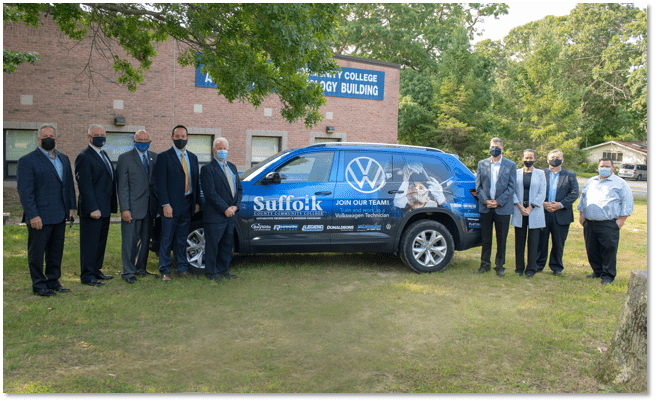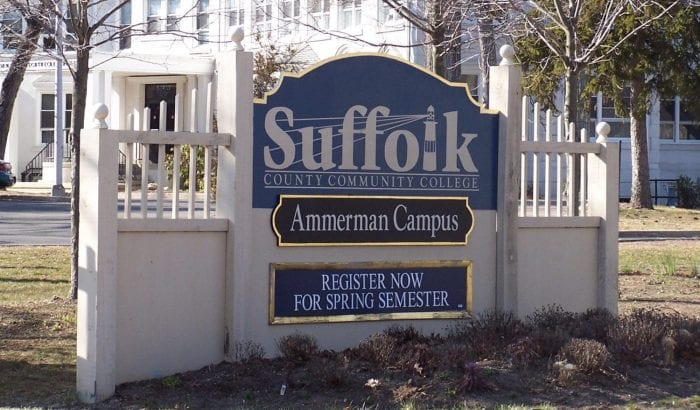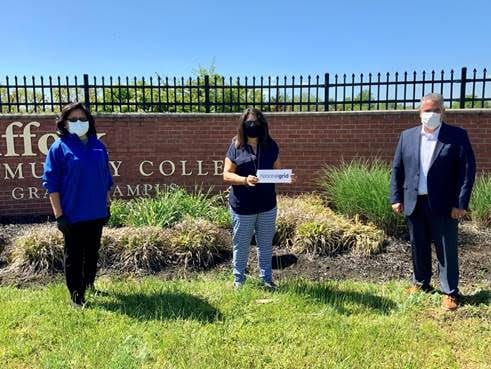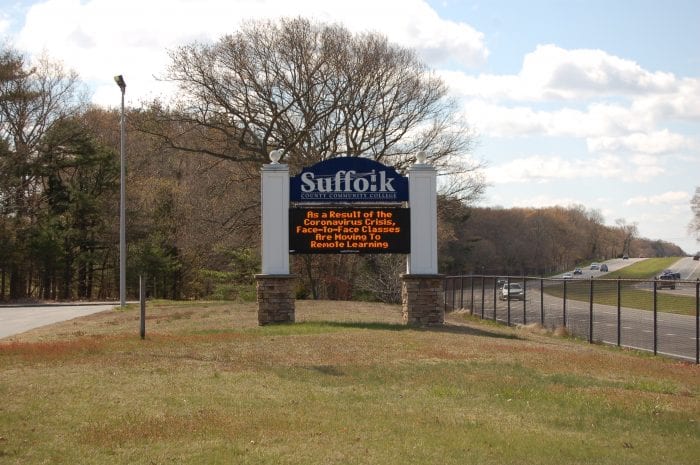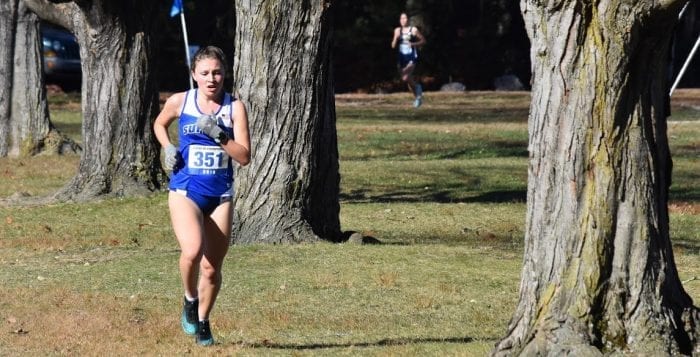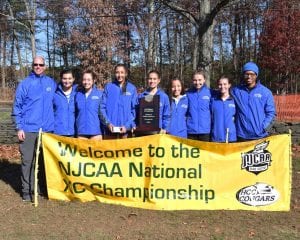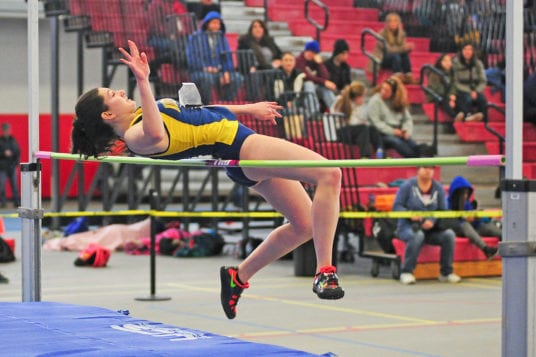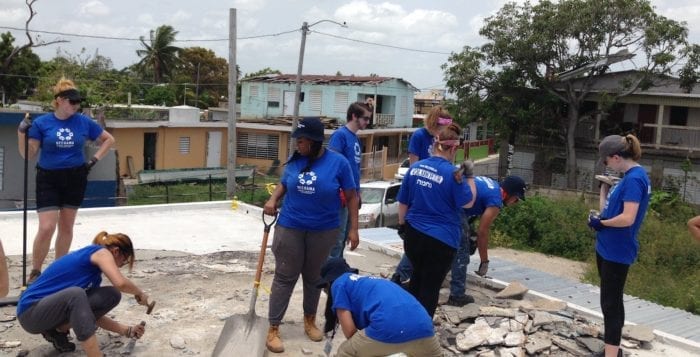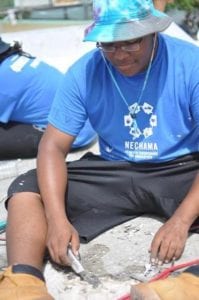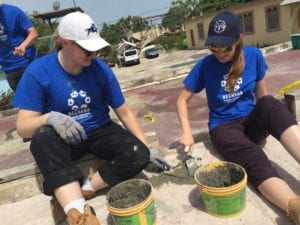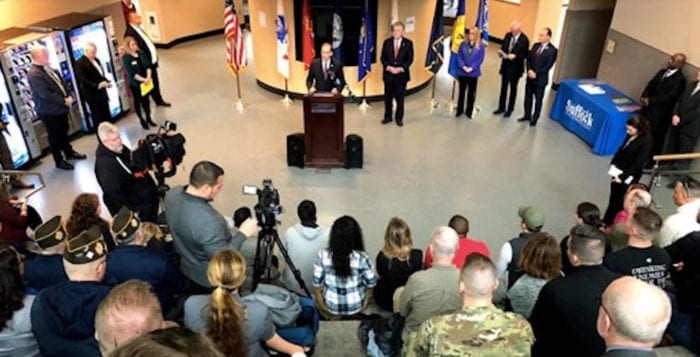Suffolk County Community College accepted the donation of a 2020 Volkswagen Atlas to its Automotive Technology Program on Sept. 16 as part of Volkswagen’s Drive Bigger initiative. Volkswagen and local dealers are donating vehicles to universities, colleges, and technical and trade schools to develop future Volkswagen-trained automotive technicians.
New York State Assemblyman Douglas Smith, whose district includes Suffolk’s Ammerman Campus, presented certificates of recognition to the assembled Volkswagen dealer and corporate representatives as a thank you for the generous donation.
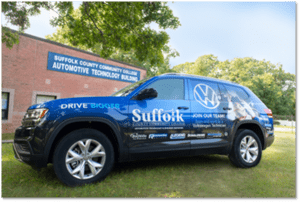
Suffolk County Community College Interim President Louis Petrizzo thanked the Volkswagen executives for this donation to Suffolk’s program and explained that the College “… is very much aware of industry needs for automotive workers. We are proud of the technicians we produce. They are professionals that are not only going to be skilled auto technicians, but also have the ability and talent to move into supervisory and management positions,” Petrizzo said. “Our students, importantly, are also taught communication and soft skills that we know are important to the industry.”
“We are extremely fortunate to have strong support from our local area dealerships and manufacturer partners. The support they provide allows us to provide quality automotive education for our students resulting in a prepared workforce for their businesses,” said Automotive Technology Academic Chair David Macholz.
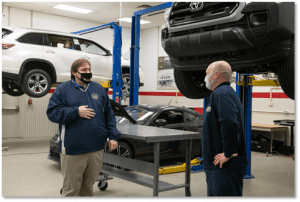
“These vehicles will be essential in assisting the next generation of Volkswagen technicians to interact with and learn the latest technology that is part of our exciting model lineup” said John Peterson, Director of Fixed Operations. “At Volkswagen we strongly believe in investing in the next generation and with our growing model lineup, it’s critical we give young technicians the opportunity to be hands on with our vehicles to help ensure we continue to deliver a high level of customer satisfaction in the future.”
Pictured in top photo, from right, Michael Siegel, Dealer Principal Legend VW; Dan Anderson, VW of America; Fixed Operation Manager Northeast Region; Louis Petrizzo, Interim President Suffolk County Community College; Dave Macholz, Academic Chair, Suffolk Automotive Technology; Ed Merman, Smithtown Volkswagen Service Manager; Bill Moran, Donaldson’s Volkswagen Service Director; Suzanne Cochrane, Bayside Volkswagen General Manager; John Peterson, VW of America Director of Fixed Operations Northeast Region; Joe Romano, Service Manager, West Islip VW.
Suffolk County Community College’s Automotive Technology program is an Automotive Service Excellence (ASE) Education Foundation certified course of study that is designed to prepare students for employment as automobile technicians and is intended for those seeking careers as employees of automotive service facilities.
All programs have academic as well as automotive classes that fulfill requirements to obtain an A.A.S. degree. Suffolk’s program is also the only at a northeast college to offer the state-of-the-art Tesla START technician training program.

